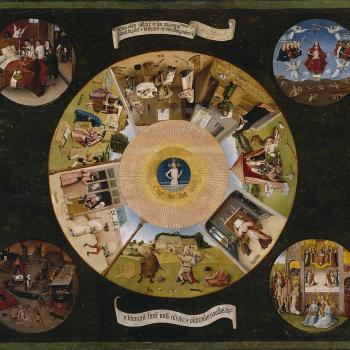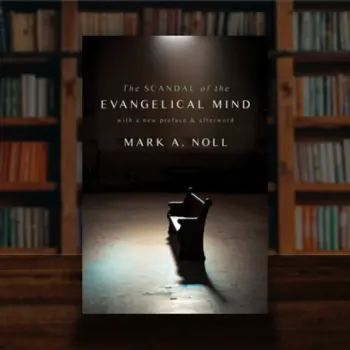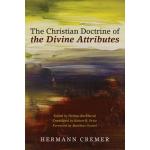Every so often, I remind myself that academia (at least in the discipline of History) is not a meritocracy. At the end of this post, I’ll explain why this reminder is important.
This is true at every step of an academic career, from applications to graduate school to publishing to seeking a new job. For now, I will concentrate on the intersection between the job market and the world of university-press publishing.
Almost everyone finishing graduate school has some sort of sobering encounter with the job market. For me, one of the worst moments was going to the American Historical Association’s annual meeting for one preliminary interview. This meant that I and perhaps a dozen other people were competing for an on-campus interview. (As an aside, I don’t think departments should conduct interviews at conferences, as it sometimes forces candidates to spend a thousand dollars for a half-hour interview. No one should have to pay to interview for a job). I think I interviewed rather poorly, and that was that.
The next year was better. I ended up with several preliminary interviews and two or three on-campus invitations. One reason was because I had finished my dissertation. Since then, I have learned that at least some departments will not give serious consideration to candidates who are ABD (all but dissertation). There’s a risk that a selected candidate will not complete his dissertation, and many departments will not assume that risk. Especially since there is always a glut of candidates, departments can afford to be choosy.
There was a second reason that I fared better. Between year one and year two, I secured an advance contract to publish my dissertation, which became my Bill Bright and Campus Crusade for Christ. This set me apart from at least some other candidates.
Why was I able to get the advance contract? Certainly some of that is due to various kinds of merit, but there was a lot of good fortune involved. Inspired and advised by friends, I wisely made the rounds at a conference, met with acquisition editors, and talked up my project. One of those acquisition editors had a family member who was — if I recall correctly — on staff with Campus Crusade. This conversation helped get an editor’s eyes onto the proposal.
It would be nice to think that university-press publishing is mostly about merit. After all, university presses submit book manuscripts to peer review. But there are many things at play. University presses, or at least most of them, publish many books that will not sell more than a small number of copies to research libraries. Presses publish those books as part of their mission to advance scholarship and knowledge. At the same time, and in part to cover the cost of money-losing books at a time when universities are cutting their budgets, presses have a particular interest in books that might reach larger audiences (larger in this context usually is still pretty small).
Right off the bat, scholars publishing in certain fields have an advantage. Americans are most likely to purchase titles on the history of the United States. Religion also sells relatively well. So writing in the subfield of American religious history works well in this respect. (Search committees, by contrast, rarely mention religion as a point of interest. Departments far more commonly identify race and gender as desired fields of study). In short, it was going to be relatively easy for me to publish my dissertation. I could at least argue that some general-interest periodicals (such as Christianity Today) might review my book and that some evangelicals would purchase it. Another historian with a far superior dissertation but in a different field might face more of an uphill struggle.
There are many other things to consider. Peer-review can be meritocratic. Ideally, an editor identifies two or three leading scholars in the field, makes certain there are no obvious conflicts of interest, and obtains dispassionate appraisals of a manuscript’s quality. But it doesn’t always work that way. If an acquisition editor really likes a project, she might send it to individuals she thinks will also really like it. An editor often solicits recommended peer reviewers from the author herself, which provides an opportunity to nudge things in this direction. Sometimes editors inform reviewers that the proposal in question is an “agented” proposal, which also signals the press’s interest in the project.
It is also important to note that peer review is often not blind. Peer reviewers usually know the author’s identity, important for assessing an author’s ability to bring a project to a successful completion. But that means that the reviewers might have a grudge against the author (or, alternatively, a close friendship with the author).
The above isn’t meant to be critical. I have had wonderful experiences with several university presses, both as an author and as a reviewer. But it’s important for first-time academic authors in particular to know that university-press publishing is quirky, subject to a variety of forces and influences other than authorial merit.
In many departments, it is necessary to publish a book in order to get tenure. Typically, departments prefer that historians publish their first books with a university press. Again, then, certain historians have a leg-up when it comes to acquiring the credentials required for tenure. Book-publishing also counts for a great deal when it comes to future job opportunities, applications for fellowships or research grants, etc.
Thus far, I’ve been writing about one aspect of an academic career. It would make this too long of a post to discuss other elements, such as admissions into graduate programs and academic job searches. Suffice it to say that many things go into such decisions other than the teaching and research qualifications of applicants.
Now, none of this is news to any academic historians (though I encourage graduate students and early career historians to familiarize themselves with the process of book publishing — I didn’t think very much about it until my first year on the job market). Also, if you are a friend or family member of an academic historian or graduate student, it might be helpful to have some sense of the vagaries of publishing and job searches. It’s all too easy for those on the outside to presume that because someone hasn’t gotten a job, he or she somehow falls short of the mark. That’s usually not the case.
In my academic career, I’ve both worked hard and been the beneficiary of considerable good fortune (or Providence) and timing. The mid-2000s were a good time to write about American evangelicalism. Could there have been a better time than 2012 for a book about Mormonism? I don’t think so. I wasn’t strategic with my choices. I simply wrote about what interested me (not the worst strategy), and things happened to work out, both in terms of publishing and on the job market.
In terms of jobs and publications, things have worked out even better for some of my fellow historians, and not as well for others. Absolutely, we should applaud those who land plum positions and publish books with great presses. Those historians worked hard for such successes.
At the same time, everyone involved should always keep in mind that we do not work within a meritocratic system. This should keep us humble when we meet with success but also buoy us a bit when we do not.
















